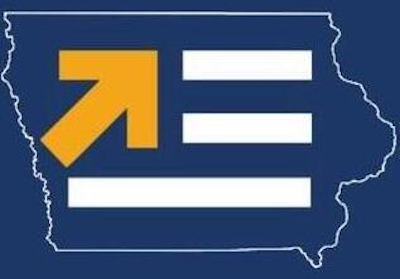Many a bad bill has passed the U.S. House of Representatives with the votes of Republicans and Democratic “Blue Dogs.” These representatives call themselves “moderates” or “centrists,” and you often find them voting with corporate interests, against the majority of the House Democratic caucus, when the chips are down.
This Washington Post article about the upcoming debate over an economic stimulus bill cites Representative Baron Hill of Indiana as “incoming co-chairman of the Blue Dog Coalition, a caucus of 51 fiscally conservative House Democrats.”
Hill wants the economic stimulus money to go toward road and bridge construction, whereas others would like to see more of the money spent on “green jobs” and infrastructure projects that are more environmentally friendly than building new roads. Progressives would like to spend the transportation money on fixing our existing roads and bridges while expanding public transit and rail.
Friends of the Earth has launched a campaign to “keep the economic stimulus clean”:
Transportation in the U.S. is responsible for 30 percent of our global warming pollution and 70 percent of our oil consumption. We cannot solve the energy and climate challenge without making our transportation system far cleaner and more efficient.
President-elect Obama and the congressional leadership are moving quickly to pass an economic stimulus package that creates green jobs with a new, clean energy infrastructure. Public transportation, smart growth and green transportation alternatives are a crucial part of this effort.
Unfortunately, the road-building lobby is attempting to hijack this bill and divert billions of dollars to the construction of new, unnecessary roads, highways and bridges that would deepen our nation’s dependence on oil and increase greenhouse gas emissions.
Click here for more details about the economic and environmental consequences of letting new road construction dominate the stimulus bill.
Getting back to the title of this diary, Matt Stoller read that Washington Post piece about debates over the stimulus and was intrigued to learn that Hill claims 51 members for the Blue Dog Coalition:
Last session, there were 49 Blue Dogs, and during the election season the caucus continually bragged about how they would add a substantial number of new members in 2009. Still, their PAC didn’t give to very many Democratic candidates, two Blue Dogs lost reelection, and a bunch of their candidate prospects lost. If it’s true that the Blue Dogs have only increased their number by 2, and I’m not sure it is, then they really are far weaker in the House than they were from 2006-2008. There are 257 Democrats in the next Congress and 178 Republicans. While the Blue Dogs are still a swing bloc, they only have 11 votes to give. That’s not very many, considering that this number assumes all Republicans always vote with the Blue Dogs. If Republicans split off from their caucus on certain votes, even small numbers of Republicans, then Blue Dog priorities are far less likely to matter overall.
Leonard Boswell (IA-03) is the only Iowa Democrat in the Blue Dog group. Once the new House convenes, it will be interesting to see how the Blue Dogs compare in number to the Progressive Caucus, which had 71 members in the last Congress, including Dave Loebsack (IA-02). My hunch is that the Progressive Caucus will add a lot more new members than the Blue Dogs.
After the new year I’ll try to find out how many members Bruce Braley (IA-01) was able to recruit to the Populist Caucus he is forming.
Whether or not Blue Dog power declines in the House, it may be on the rise in the Senate. Senator Evan Bayh of Indiana is setting up a Blue Dog caucus in the upper chamber. Although Senate Majority leader Harry Reid’s spokesman claims Reid is “upbeat” about Bayh’s plans, it’s likely that the Senate Blue Dogs will collude with Republicans to obstruct Barack Obama’s agenda.
Matthew Yglesias advanced a very plausible hypothesis about Bayh’s move:
With Republicans out of power, the GOP can’t really block progressive change in exchange for large sums of special interest money. That creates an important market niche for Democrats willing to do the work. It was a good racket for the House Blue Dogs in 2007-2008 and there’s no reason it couldn’t work for Senate analogues over the next couple of years.
Let’s hope the memory of the 1994 Republican landslide will induce conservative Democrats not to block most of Obama’s agenda. The Democrats who ran Congress in 1993 and 1994 wanted to show Bill Clinton who was boss, but the effect was to make Democrats look incompetent, depressing Democratic base turnout in 1994 and turning swing voters toward the Republicans.
On the other hand, I would not underestimate the Blue Dogs’ willingness to do what big money wants, whether or not it’s good for the Democratic Party.
Share any relevant thoughts in the comments.
UPDATE: Kagro X notes that the Progressive Caucus seems to be a more cohesive voting bloc than the Blue Dogs, which is surprising.
Meanwhile, Chris Bowers argues persuasively than the Blue Dogs have achieved little on their alleged signature issue of “fiscal responsibility”:
If the Blue Dogs only exist in order to promote “fiscal responsibility,” isn’t it pretty clear that, rather than getting their way, they have actually failed across the board over the last eight years? From the Bush tax cuts, to soaring deficits, to making exceptions for war, to making exceptions for bailouts, to making exceptions to stimulus packages, the Blue Dogs have completely and utterly failed at their stated primary policy area and done so at every available opportunity.
The only actual successes of the Blue Dogs appear to be the [Foreign Intelligence Surveillance Act] re-write and blank check funding for Iraq. It is notable that 38 of the 47 Blue Dogs voted in favor of both these measures, which jointly render a member a “Bush Dog” in Open Left’s terminology. Given that 70 House members voted in favor of both those measures, the Democratic defectors on those issues were clearly spearheaded by the Blue Dogs.
Mainly, I am impressed that Blue Dogs keep earning press that describes them as fiscally responsible and wildly powerful, when the record shows otherwise. When offered opportunities to actually clamp down on spending over the last two years, the Blue Dogs have balked at every turn, favoring blank check funding for Iraq, blank check funding for the bailout, and massive funding for the economic stimulus. That a group of House members can do all of this and still be described as both “fiscally responsible” and “powerful” is pretty impressive. Maybe what we progressives really need is to hire the Blue Dogs’ PR people.
Continue Reading...


